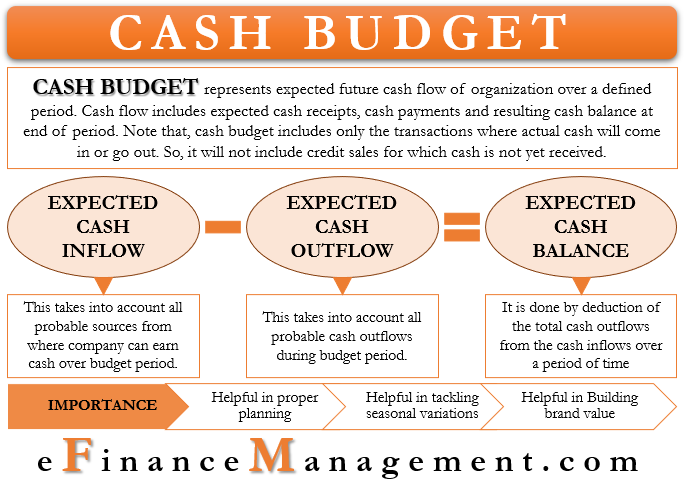How To Find Quality Products On A Budget: A Step-by-Step Guide

Table of Contents
Research and Planning: Laying the Foundation for Smart Shopping
Before diving into the exciting world of bargain hunting, a solid plan is crucial. Effective research and planning are the cornerstones of finding quality products on a budget.
Defining Your Needs and Wants: Distinguishing Necessities from Desires
Before you even begin browsing, differentiate between your needs and wants. This prioritization is key to effective budget management.
- Needs: These are essential items you require, such as durable clothing, reliable electronics, or necessary household supplies.
- Wants: These are items you desire but can live without, like trendy accessories or the latest tech gadget.
Creating a detailed list of your needs and wants helps you stay focused and avoid impulsive purchases. Utilizing budgeting apps like Mint or YNAB (You Need A Budget) can further refine your spending plan and track your progress.
Knowing Where to Look: Exploring Different Avenues for Budget-Friendly Finds
The key to finding quality products on a budget lies in knowing where to look. Explore a variety of avenues beyond typical retail stores:
- Online Marketplaces: Sites like eBay and Amazon offer a vast selection of new and used products, often at discounted prices. Look for reputable sellers with positive feedback.
- Thrift Stores and Consignment Shops: These hidden gems are treasure troves for gently used clothing, furniture, and home goods. Check local listings frequently, as inventory changes rapidly. Goodwill and Salvation Army are good starting points.
- Discount Retailers: Stores like TJ Maxx, Marshalls, and Ross offer a curated selection of discounted brand-name merchandise.
- Factory Outlets: These outlets sell directly from the manufacturer, offering significant savings on slightly imperfect or older stock. Consider the potential trade-off between price and quality.
- Clearance Sales: Keep an eye out for seasonal clearance sales in both brick-and-mortar stores and online retailers. This is a prime opportunity to score great deals on end-of-season items.
Mastering the Art of Comparison Shopping: Finding the Best Deals
Don't settle for the first price you see! Comparison shopping is essential for securing the best deals on quality products.
- Price Comparison Websites: Use websites like Google Shopping or PriceGrabber to compare prices from different retailers.
- Customer Reviews: Thoroughly read customer reviews to gauge the product's quality, durability, and overall value. Pay attention to both positive and negative feedback.
- Shipping Costs: Factor in shipping costs before making a purchase, as these can significantly impact the final price. Look for free shipping options or retailers offering discounts.
- Coupons and Discount Codes: Utilize coupon websites and browser extensions to find and apply discount codes before checking out.
Smart Shopping Strategies: Maximizing Your Budget
Even with thorough research, strategic shopping is crucial for maximizing your budget and securing quality products at affordable prices.
Leveraging Sales and Promotions: Capitalizing on Seasonal Opportunities
Plan your purchases around major sales events to maximize your savings:
- Black Friday and Cyber Monday: These annual sales events offer deep discounts across a wide range of products.
- Seasonal Clearance Sales: Take advantage of end-of-season sales to purchase clothing, outdoor gear, and other seasonal items at significantly reduced prices.
- Holiday Sales: Many retailers offer special promotions during holidays like Christmas and Easter.
Utilizing Loyalty Programs and Rewards: Earning Extra Savings
Loyalty programs can add up to significant savings over time.
- Store Credit Cards: Some store credit cards offer cashback rewards or discounts on purchases. However, carefully consider the interest rates before signing up.
- Loyalty Programs: Sign up for loyalty programs at your favorite stores to earn points or cashback on your purchases. Examples include Amazon Prime, Target Circle, and Sephora Beauty Insider.
- Cashback Websites and Apps: Websites and apps like Rakuten and Honey can provide cashback on purchases made through their platforms.
Considering Refurbished or Second-Hand Options: Finding Hidden Gems
Don't overlook the potential of refurbished or second-hand products.
- Refurbished Products: These products have been inspected, repaired, and restored to working order. They often come with warranties, offering a balance between price and quality.
- Second-Hand Options: Buying used goods from reputable sources can be a great way to save money, particularly for items that don't require peak performance (e.g., some clothing or home goods).
Evaluating Product Quality: Avoiding Costly Mistakes
Knowing how to evaluate a product's quality is crucial to avoid costly mistakes and ensure your purchase aligns with your budget.
Checking Reviews and Ratings: Gathering Valuable Feedback
Don't rely solely on a single review.
- Multiple Reviews: Read multiple reviews from different sources to get a well-rounded perspective on the product's quality and durability.
- Fake Reviews: Be wary of fake reviews and look for patterns in genuine feedback.
- Consistent Feedback: Focus on consistent feedback about quality, durability, and customer service.
Examining Product Specifications and Materials: Understanding What You’re Buying
Pay close attention to product specifications and materials.
- Materials: Understanding the materials used can help predict a product's durability and longevity. For example, look for durable fabrics in clothing and high-quality components in electronics.
- Manufacturing Processes: If possible, research the manufacturing processes to gain insight into the product's quality.
- Warranty Information: Check the warranty information to understand the manufacturer's commitment to the product's quality.
Understanding Return Policies: Protecting Yourself from Poor Purchases
Knowing the return policy protects your investment.
- Store Return Policies: Before purchasing, familiarize yourself with the store's return policy, including timeframes and conditions for returns.
- Return Timeframes and Conditions: Pay attention to any restrictions or limitations on returns.
Conclusion
Finding quality products on a budget is achievable with a strategic approach. By combining meticulous research, smart shopping strategies, and a keen eye for quality, you can significantly improve your chances of acquiring high-quality items without overspending. Start implementing these tips today to find budget-friendly quality products, affordable high-quality items, and great deals on quality goods that meet your needs and wants. Remember, careful planning and smart choices are the keys to success in your budget-conscious shopping journey!

Featured Posts
-
 Stephen Kings Best Short Tv Series A Binge Worthy 5 Hour Watch
May 06, 2025
Stephen Kings Best Short Tv Series A Binge Worthy 5 Hour Watch
May 06, 2025 -
 After The Hunt Julia Roberts And A Sexual Assault Allegation
May 06, 2025
After The Hunt Julia Roberts And A Sexual Assault Allegation
May 06, 2025 -
 Reggie Miller Joins Nbc Sports As Lead Nba Analyst Latest On The Nba Broadcast Shakeup
May 06, 2025
Reggie Miller Joins Nbc Sports As Lead Nba Analyst Latest On The Nba Broadcast Shakeup
May 06, 2025 -
 Martin Compstons Thriller A Disappointing Letdown
May 06, 2025
Martin Compstons Thriller A Disappointing Letdown
May 06, 2025 -
 Celtics Vs Knicks Game Live Streaming Options And Tv Broadcast Details
May 06, 2025
Celtics Vs Knicks Game Live Streaming Options And Tv Broadcast Details
May 06, 2025
